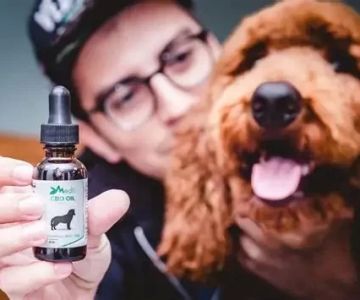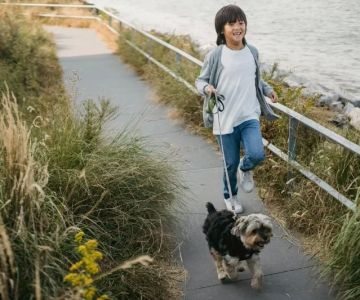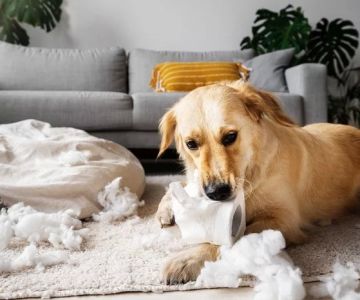How to Help a Dog with Fear of Loud Noises
Many dog owners struggle when their furry friends tremble, hide, or panic during thunderstorms or fireworks. Noise anxiety is one of the most common behavioral issues in dogs across the United States. Whether it’s the Fourth of July, a summer storm, or construction outside your window, sudden loud sounds can cause severe distress in sensitive dogs. Understanding why this happens—and learning how to manage it—can make all the difference for your pet’s emotional well-being.
1. Understanding Why Dogs Fear Loud Noises
Dogs have much more sensitive hearing than humans. Sounds that seem mildly uncomfortable to us can be overwhelming to them. This heightened sensitivity makes certain noises—like thunder, vacuum cleaners, or fireworks—feel threatening. The fear response is instinctive: many dogs perceive these sounds as potential danger and react with anxiety-driven behaviors such as shaking, drooling, hiding, or barking uncontrollably.
Some dogs develop this fear after a traumatic experience, like being caught outdoors during a thunderstorm. Others are genetically predisposed to anxiety or may pick up fearful behavior by observing other stressed animals. Older dogs, especially those with hearing or cognitive decline, can also become more startled by unexpected sounds.
2. Recognizing the Signs of Noise Anxiety
The first step in helping your dog is recognizing when they are afraid. Common signs of fear or noise anxiety include:
- Excessive panting or drooling even when not hot
- Shaking, trembling, or pacing around the house
- Trying to hide under furniture or in closets
- Destructive behavior like chewing or scratching doors
- Whining, barking, or howling persistently
- Loss of appetite or refusal to eat during noise events
Each dog’s reaction can vary in intensity. Some may simply shiver quietly, while others may become frantic and try to escape. A story shared by one pet owner at Hidden Brook Veterinary described how their Labrador, Daisy, would dig at the carpet during every thunderstorm until they sought professional help. Recognizing these symptoms early is crucial to managing the fear effectively.
3. Creating a Safe and Calming Environment
One of the most effective ways to help your dog feel secure is by creating a designated safe space in your home. Choose a quiet area—like a bedroom, bathroom, or closet—and make it cozy with blankets, toys, and familiar scents. Playing soft background music or white noise can help mask the external sounds that trigger anxiety.
During fireworks or storms, close windows and curtains to block flashes of light and reduce noise levels. Some owners find that using anxiety wraps or weighted vests helps calm their pets. These products apply gentle, constant pressure, mimicking the sensation of being hugged, which can have a soothing effect on the nervous system.
Dogs also take emotional cues from their owners. Remaining calm and speaking in a gentle, reassuring voice can prevent them from becoming more anxious. Avoid scolding or forcing your dog to face their fears—it’s better to offer quiet comfort and positive reinforcement when they remain calm.
4. Gradual Desensitization and Counterconditioning
For dogs with chronic noise phobia, gradual desensitization can be an excellent long-term solution. This process involves exposing your dog to recordings of loud noises at low volumes and rewarding calm behavior. Over time, you can increase the volume slightly while continuing to provide treats and praise. The goal is to help your dog associate loud sounds with positive experiences rather than fear.
This method requires patience and consistency. Working with a professional animal behaviorist or consulting a veterinarian from Hidden Brook Veterinary can help you design a safe and effective desensitization plan tailored to your dog’s specific triggers. Some pet owners combine this approach with pheromone diffusers or calming supplements for additional support.
5. Veterinary and Medication Options
In cases of severe anxiety, behavioral training alone might not be enough. Veterinarians can prescribe medications to help manage extreme stress responses. Options may include short-term anti-anxiety drugs for holidays like the Fourth of July or long-term solutions for dogs with ongoing phobias. Herbal supplements and pheromone-based sprays can also provide mild calming effects.
It’s essential to consult a licensed veterinarian before administering any medication. At Hidden Brook Veterinary, our team evaluates each dog’s medical history, behavior patterns, and environment to recommend safe, science-backed treatments. Many dogs benefit from a combination of environmental adjustments, behavioral therapy, and, when appropriate, medication.
6. Real-Life Story: Helping Buddy Overcome His Fear
One heartwarming case involved a golden retriever named Buddy, whose owners struggled for years with his fear of fireworks. Every summer, he would shake uncontrollably and try to hide in the bathtub. After consulting Hidden Brook Veterinary, his family implemented a structured desensitization program paired with a calming vest and a natural supplement prescribed by the vet. Within months, Buddy’s behavior changed dramatically—he still noticed loud noises, but no longer panicked. His story illustrates that, with patience and the right approach, progress is absolutely possible.
7. Building Long-Term Confidence in Your Dog
Helping your dog overcome fear takes time and understanding. Routine, exercise, and positive association play significant roles in reducing anxiety. Keeping your dog well-exercised and mentally stimulated helps lower overall stress levels. Incorporate daily playtime, interactive toys, and calming activities like gentle walks or massage.
Consistency is key—if you continue reinforcing calm behavior and maintaining a predictable environment, your dog’s confidence will gradually improve. Over time, even the most anxious dogs can learn to tolerate or ignore noises that once terrified them.
If your dog continues to show severe signs of stress despite your best efforts, reach out to professionals at Hidden Brook Veterinary for personalized care and support. Their experienced team can guide you through advanced behavioral solutions and ensure your dog feels safe, calm, and loved year-round.












